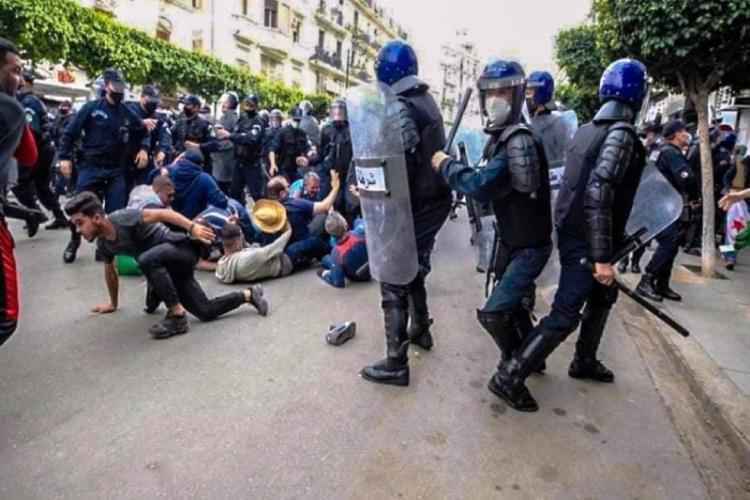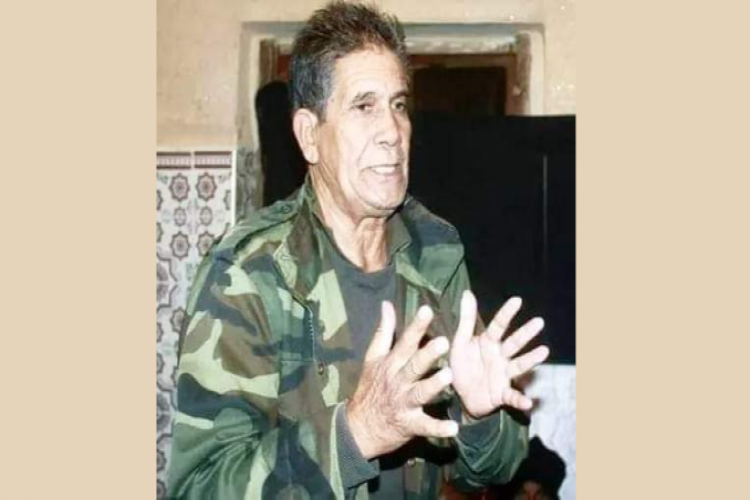The European Parliament's vote: a blatant manipulation of children's rights and an attack on the "Euro-Moroccan partnership for shared prosperity"
The European Parliament has just adopted on the 10th of June a resolution against Morocco concerning the so-called "violation of the United Nations Convention on the Rights of the Child and the use of minors by the Moroccan authorities in the migratory crisis in Ceuta".
This is an outrageously biased and untruthful position, in which the document adopted "expresses its rejection of Morocco's use of border controls and migration, and in particular of unaccompanied minors, as a means of exerting political pressure against a Member State of the Union"[1]
A resolution contrary to the Convention on the Rights of the Child and which does not have the effect expected by its promoters.
What is the value of a European Parliament resolution in international matters? Is it enough to hide behind the United Nations Convention on the Rights of the Child to overshadow the violation by the European States themselves of the said Convention and of the major principles underlying it, including the principle of non-discrimination and the principle of the best interests of the child in the settlement of migratory crises, and this at the very moment when the European States are regularly questioned by the United Nations Committee on their direct responsibility in the treatment of migrant children, including unaccompanied children? Moreover, what is the weight of the European Union and how has the European Parliament come to such contradictions by overshadowing the substance of the problem, which is bilateral, in this case, and where Morocco blames Spain for the way in which Brahim Ghali was received?
In its concluding observations adopted on 2 February 2018 following the consideration of the combined fifth and sixth periodic reports of Spain, the Committee expressed "serious concern that under Spanish law, the Public Prosecutor is empowered to undertake age determination procedures for unaccompanied foreign children. While taking note of the information provided to the Committee by the State party delegation, the Committee is nevertheless concerned about the use of intrusive age assessment methods, even in cases where identity documents appear to be genuine, in particular in the autonomous cities of Ceuta and Melilla, and despite several Supreme Court decisions on this practice. The Committee is also concerned about:
- Unaccompanied children who are excluded from the child protection system due to an assessment of their age and who may therefore be victims of trafficking;
- The insufficient and uneven standards of protection for unaccompanied children across the Autonomous Communities, including cases of lack of or delay in legal assistance, or inadequate provision of information to children;
- High levels of violence, inadequate treatment and protection by professionals in childcare centres, including allegations of prostitution of girls and insufficient access to education and regular leisure activities, as well as the lack of a complaints mechanism;
- The practice of automatic refoulement of children seeking international protection in the autonomous cities of Ceuta and Melilla, without the necessary safeguards;
- Insufficient information exchange and coordination regarding the referral of unaccompanied children by the police to child protection agencies;
- The situation of approximately 100 unaccompanied foreign children in the streets near the port of the autonomous city of Melilla.
Considering its general comment No. 6 (2005) on the treatment of unaccompanied and separated children outside their country of origin and its general comments No. 22 (2017) and No. 23 (2017) and recalling its previous recommendations (see CRC/C/ESP/CO/3-4, para. 60), the Committee urges the State party to review Law No. 26/2015 and the Framework Protocol on Unaccompanied Foreign Minors to ensure that they comply with the provisions of the Convention. It also urges the State party to:
- Provide effective legal protection to unaccompanied children throughout its territory and ensure that the principle of non-refoulement is applied and that the best interests of the child are given primary consideration, and provide further training and guidance to relevant professionals on the assessment of the best interests of the child;
- Develop a uniform protocol on age determination methods for the whole territory of the State party, which is multidisciplinary and respectful of human rights, and which is used only in cases of serious doubt as to the age claimed and taking into account available documents or other forms of evidence;
- Establish child-friendly shelters with accessible and effective complaints mechanisms and thoroughly investigate any case of violation of children's rights;
- End the practice of automatic refoulement of some children, ensuring that all procedures and standards are consistent with their status as children and with national and international law;
- Improve the collection and exchange of information to ensure the referral of unaccompanied children, trafficked children and children seeking international protection to child protection services;
- Strengthen cooperation with the Office of the United Nations High Commissioner for Refugees in the implementation of these recommendations.[2]
These concluding observations and recommendations of the UN Committee on the Rights of the Child show the difference between a partisan, although European or "communitarian", approach and one that is truly based on the Convention on the Rights of the Child and that constantly reminds States Parties of their own commitment, which was made at the time to all children, without distinction, to respect, protect and fulfil a core value that transcends all the principles and rights recognised by the Convention: the Dignity of the Child.
Every child is a unique and precious human being, and States Parties are therefore committed to respecting and ensuring the rights set forth in the Convention to every child within their jurisdiction without discrimination of any kind, and to ensuring that the best interests of the child are a primary consideration in all actions concerning children.
These same principles, as recalled in the European Parliament's resolution of 26 November 2019 on the rights of the child, adopted on the 30th anniversary of the UN Convention on the Rights of the Child[3], are nevertheless an explicit objective in EU policies and are enshrined in the Charter of Fundamental Rights, which requires that the best interests of the child be a primary consideration in all EU action.
The same resolution recalls, in its recitals, that "the rights of the child continue to be violated in many parts of the world, including in EU Member States, as a result of violence, abuse, exploitation, poverty, social exclusion and discrimination based on religion, disability, gender, sexual identity, age, ethnicity, migration status (emphasis added) or residence" and calls on the Commission and the Member States to "ensure that the principle of the best interests of the child is always fully respected in all legislation, in all decisions taken by government representatives at all levels and in all court decisions, and encourages Member States to share best practices with a view to further improving the proper implementation of the principle of the best interests of the child in the European Union".
With regard to migrant children specifically, while recalling that "the best interests of the child should be a primary consideration in all actions concerning migrant children" the resolution : "[...] Urges the Member States to fully implement the Common European Asylum System in order to improve the conditions of all migrant children, including unaccompanied children in the European Union; urges the Commission and the Member States, in this regard, to address the current worrying situation of children in EU migrant reception centres Calls on the EU and the Member States to step up their efforts to end the detention of children in connection with migration in the EU, in accordance with the New York Declaration for Refugees and Migrants, and to introduce reception alternatives to detention, as well as to prioritise integration, education and counselling" and "[...] stresses that an unaccompanied child is first and foremost a child potentially at risk and that the protection of children, not migration policies, must be the driving principle of the Member States and the European Union with regard to them, in order to ensure that the essential principle of the best interests of the child is respected [...]".
Under these conditions, we can see to what extent the latest resolution adopted by the European Parliament on Thursday 10 June against Morocco is an outrageous departure from these principles and falls short of human and political requirements, with even the risk for Europe of having to assume, once again, in the bilateral crisis between Morocco and Spain, the pitiful status of the Community bloc that has once again become an immigrationist and xenophobic one!
The fact that many MEPs did not support this resolution shows the weakness of the text and its aggressive manoeuvres against human rights and the rights of the world's most vulnerable citizens, namely children!
This is the only satisfaction to be retained from the last vote of the European Parliament! It gives us hope that Europe will rediscover the true values that distinguish it in international relations and that its institutions and mechanisms will no longer be used for purposes other than those for which they were intended, with a view to endorsing a colonial act from another era that began in Ceuta and Melilla, at the risk of destabilising one of the few stable and peaceful countries in the region, Morocco, at a time when the Kingdom is making definite efforts in the field of migration, in particular the latest announcement on 1 June 2021 of the readmission of identified unaccompanied minors.
Such a position is a reminder of Morocco's commitment, under the aegis of His Majesty King Mohamed VI, to the principles and values of solidarity and human rights, which undoubtedly begin with the way in which society treats its children, including the most vulnerable among them, as recalled in the Royal Message addressed to the participants in the 2nd World Forum on Human Rights[4].
May we then hope that the European Parliament will revise its position in accordance with the commitments made between Morocco and the EU as expressed in the Political Declaration adopted at the end of their last Association Council in June 2019, where the two parties agreed to bring to life a "Euro-Moroccan Partnership of Shared Prosperity" turned towards the future!
By Hatem KOTRANE
Emeritus Professor at the Faculty of Legal, Political and Social Sciences of Tunis - University of Carthage
Former member and vice-chair of the United Nations Committee on the Rights of the Child
[1] Resolution approved by 397 votes in favour, 85 against and 196 abstentions.
[2] Cf. UN Doc. CRC/C/ESP/CO/5-6, 5 March 2018, Para. 44-45.
[4] Cf. Message from His Majesty King Mohammed VI to the participants of the 2nd World Forum on Human Rights (Marrakech, 27 November 2014): "... The issue of protection against all forms of violation of children's rights is a constant concern for Us..."-




